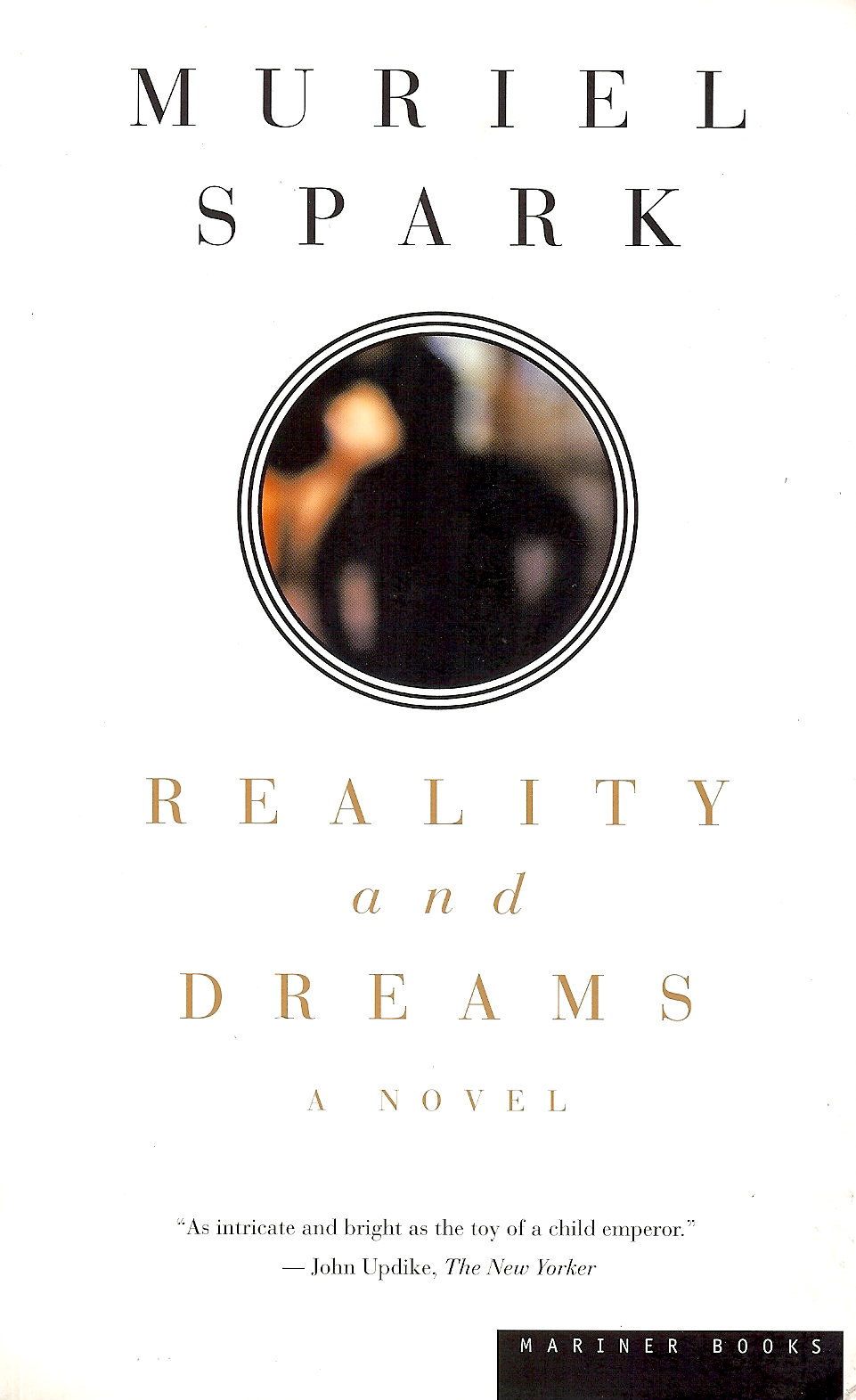Tom often wondered if we were all characters in one of God's dreams. To an unbeliever this would have meant the casting of an insubstantiality within an already insubstantial context. Tom was a believer. He meant the very opposite. Our dreams, yes, are insubstantial; the dreams of God, no. They are real, frighteningly real. They bulge with flesh, they drip with blood. My own dreams, said Tom to himself, are shadows, my arguments--all shadows.
I briefly thought that this was the last of Muriel Spark's novels that I had yet to read. What a bittersweet moment that would have been! It would have been gratifying, then, to find that Reality and Dreams is so fun, in the mordant way that only Spark's novels can be fun, and that it begins with a sentence that is so much like her as this one: "He often wondered if we were all characters in one of God's dreams."
Nearly all of Spark's novels are about this, about control, about free will. Her characters are always seeking it--control--over themselves and others, sometimes finding it, other times finding it elusive. But it's always the writer, like God, who really has it, always Spark. In this case, the protagonist, Tom Richards, is not an author but a director, another God-like figure who, through his films, exerts a kind of control over reality. That control is to some extent illusory, because what's on the screen is an invention, but in other ways it is very real: Tom controls the lives and livelihoods of all his actors and crew, and to be cast or not cast is life-changing. In his real life, Tom is always casting, imagining the roles for which his acquaintances and loved ones would be most certain. As the novel begins, however, Tom has just fallen from a crane while filming, leaving him hobbled and--for once--helpless. A reminder, maybe, of who is in control of reality and who is in control only of dreams.
One of the motifs in Reality and Dreams is redundancy. This is a particularly British term, I think, that means someone has been found unnecessary at their job, and therefore sacked. To be found redundant, as many of the supporting characters do, is to be found unnecessary to the plans of those in control, whether God or otherwise. To be redundant is to lose control and to be erased. It's Tom's sour and unattractive daughter Marigold who finds the way out of redundancy by disappearing on purpose. (In this she reminded me of characters in both The Driver's Seat and The Public Image, who stage elaborate suicides as exertions of control, but Marigold is too nasty to obliterate herself permanently.) In Marigold's absence, Tom, who has never liked her ("She is nemesis in drag," Tom thinks, "She is the Last Judgment..."), begins to at last find her irreplaceable, and finally invents a part for her: an ancient Druid who can see the future. Another fantasy of godliness, maybe--imagined omniscience to go with imagined omnipotence.
Compare Marigold to Jeanne, the doomed waif cast in the other of Tom's two projects. The movie is based on a fantasy Tom had, seeing a beautiful girl making hamburgers at a campsite, he imagines a wealthy benefactor bestowing millions upon her without identifying himself. Jeanne is cast as the hamburger girl (in what is briefly and hilariously titled The Hamburger Girl), but her role is small, fleeting; she doesn't understand that the role is only a fantasy and wants desperately to make it real. Unlike Tom, who is satisfied with the power he has in dreams, Jeanne needs the film to become true, for dreams to become reality, and to receive the munificence of stardom. That Jeanne, increasingly strung out, begins to mix up reality and dreams is the fount of her tragedy.
It seems likely that this was Spark's final really good novel. She only wrote two more in her lifetime, both of which felt too hollowed out to me: Aiding and Abetting and The Finishing School. I'll come back to them someday, I'm sure; I wouldn't be surprised if they have charms that escaped me. Spark's novels are always a little jagged, a little elusive. They have the air of someone who doesn't want to be pinned down, and who knows she holds all the cards. It's powerful to be an artist, as Dame Muriel knew. But it's an illusory power, to be used like a plaything, and to forget where real power lies is dangerous. You can climb the crane but you can't make anything happen from up there, and you run the risk of falling.


1 comment:
The Prime of Miss Jean Brodie >
The Mandelbaum Gate >
The Only Problem >
A Far Cry from Kensington >
Girls of Slender Means >
The Takeover >
Loitering with Intent >
The Comforters >
Momento Mori >
Robinson >
The Ballad of Peckham Rye >
Reality and Dreams >
The Abbess of Crewe >
The Bachelors >
Hothouse on the East River >
The Driver's Seat >
The Public Image >
Symposium >
Territorial Rights >
Aiding and Abetting >
The Finishing School
Post a Comment